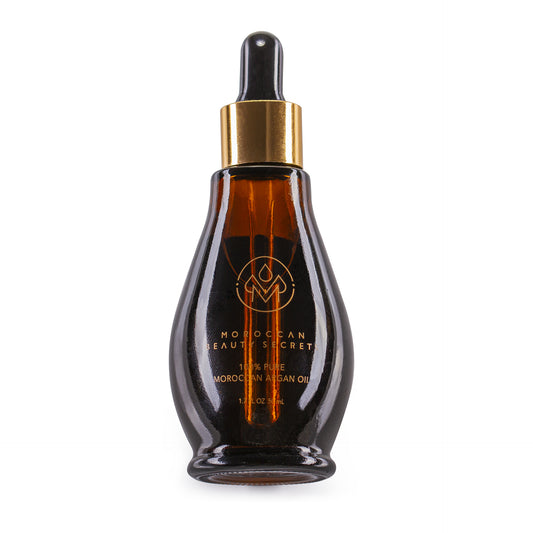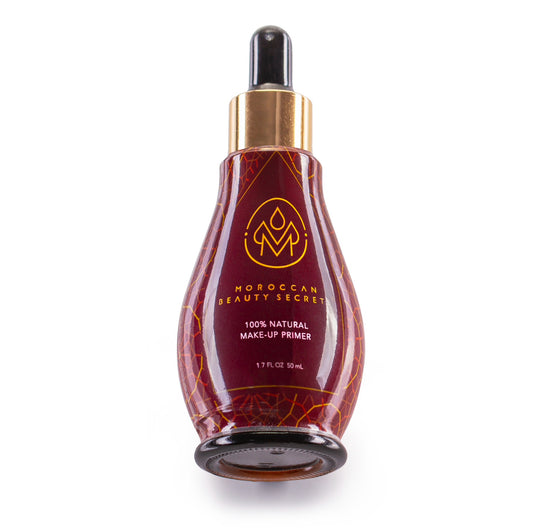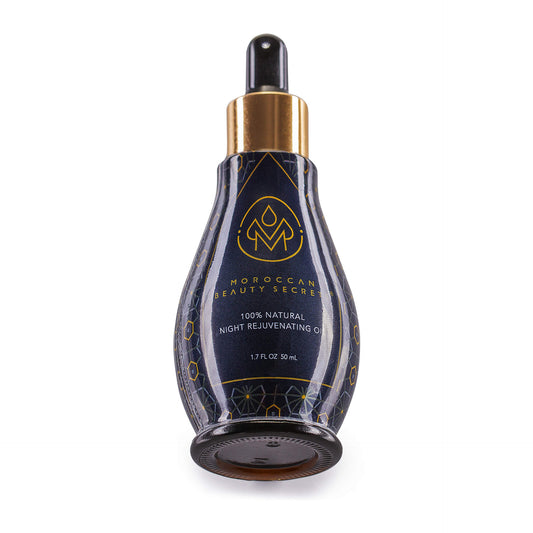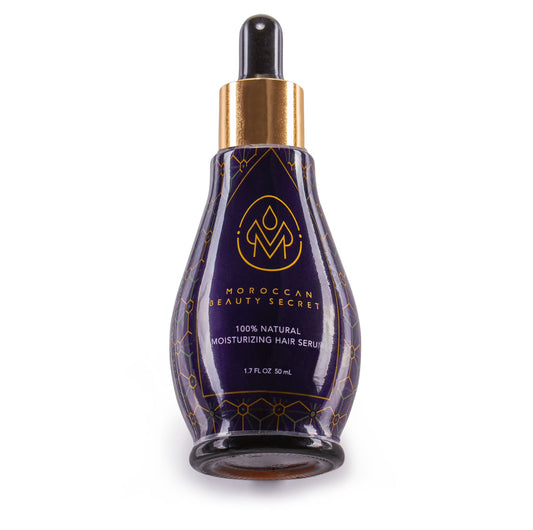How to use Argan Oil for hair fall and skin rejuvenation?
Argan Oil:
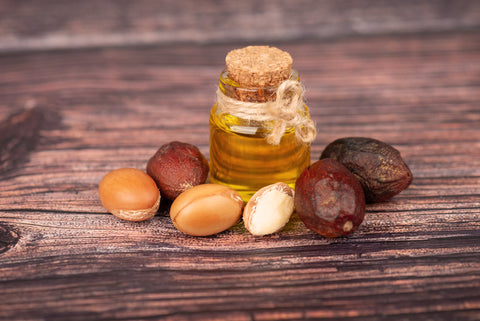
What is Argan oil?
The Tree of Life Argan oil is a plant oil produced from the Argan tree (Argania spinosa), which dates back millions of years to the Tertiary period. Once covering North Africa and areas of Southern Europe, it now only exists in Morocco (approximately 2,125,106 acres remain). The tree plays a necessary role in providing both food and protection from desertification. In 1999, the Argan tree was protected as a UNESCO Biosphere Heritage plant. The people of Morocco have used Argan oil for centuries as both a culinary and a cosmetic oil. Production of Argan oil is extremely labor-intensive. Tribeswomen harvest and press the oil. It can take up to 10 hours to crack enough nuts to produce one quart of oil.
How does Argan oil work?
Argan oil contains 80% unsaturated essential fatty acids, antioxidants, Vitamin E, and saponins, which work together to soften the skin. It is effective in treating common skin ailments such as acne, dry skin, wrinkles, and dermatitis by restoring the skin’s water lipid layer. Additionally, it cools and soothes inflammation while helping to neutralize free radicals. This rich oil is 100% pure, with no chemicals that can cause irritation to sensitive skin, making it safe for everyone.
Argan Oil Benefits:
Let’s explore the top 10 benefits of Argan oil and discover how you can incorporate this therapeutic oil into your daily routine:
- Skin Toner: Argan oil acts as a natural skin toner, fighting acne, reducing age spots, and repairing sun damage for a clearer complexion.
- Night-time Moisturizer: Absorbing quickly without leaving excess oil, Argan oil moisturizes deeply. Its vitamin A and E content reduces fine wrinkles and promotes youthful skin.
- Exfoliation: By using Argan oil as an exfoliation ingredient, you can remove dead skin cells, reduce fine lines, and achieve a youthful complexion.
- Acne Remedy: Argan oil naturally reduces inflammation caused by acne while repairing damaged skin, making it an effective remedy for acne.
- Remedy for Stretch Marks: Improving skin elasticity and hydration, Argan oil helps reduce the appearance of stretch marks when applied regularly.
- Razor Bumps Treatment: Soothe post-shaving irritation with Argan oil, relieving discomfort and making the shaving process smoother.
- Full-Body Moisturizer: Nourish your skin with Argan oil by adding a few drops to your moisturizer. It softens dry patches, leaving your skin looking younger and fresher.
- Hair Conditioner: Argan oil is a lightweight yet effective hair conditioner, adding shine and thickness while protecting against damage.
- Overnight Oiling Treatment: Deeply condition dry, brittle hair by using Argan oil for an overnight treatment once a week, protecting and hydrating your hair.
- Lip Conditioner: Argan oil doubles as a lip balm, providing instant relief from cracked lips and keeping them soft and smooth throughout the day.
How to Add Argan Oil to Your Skincare and Haircare Routine:
You don’t need to be a beauty expert to know how to use pure Argan oil effectively as part of your daily skincare and haircare routine. With a basic understanding of Argan oil and its application methods, the process can be straightforward. Check out our Argan Serum.
Getting Started with Argan Oil:
Before you begin using pure Argan oil, keep these things in mind:
- Know the quality and purity of your Argan oil to achieve the best results for your skin and hair.
- Familiarize yourself with the application methods and benefits of pure Argan oil.
For optimal results, always use 100% pure Argan oil. Many brands claim to have the best Argan oil, but the quality of the oil depends on various factors, including harvesting methods, kernel storage conditions, and the extraction process.
Here are a few tips to help you identify the quality of your Argan oil without needing extensive knowledge of its origins:
Color: Quality pure Argan oil should have a light golden color and be free of any residues or sediments.
Texture: Pure Argan oil should have a low viscosity, feeling very light and not thick or oily.
Smell: The smell of Argan oil is a good indicator of its quality and purity. A subtle, nutty smell suggests 100% pure Argan oil, while an overwhelming, strong nutty smell may indicate that water was added during the extraction process or that the Argan kernel was stored in a humid environment.
How to Use Pure Cosmetic Argan Oil:
Cosmetic Argan oil is typically produced using traditional methods such as cold pressing, without roasting the Argan kernel. There are two grades of cosmetic Argan oil:
- Extra Virgin Cosmetic Argan Oil: This grade has a low acidity level of 0.5, making it gentle and ideal for all skin types due to its light absorption and non-inflammatory properties.
- Virgin Cosmetic Argan Oil: With an acidity level between 0.6 and 1.8, this grade is particularly beneficial for hair treatments. Its high acidity rejuvenates and strengthens hair roots while restoring shine.
How to Apply Pure Argan Oil:
- On Your Skin: Argan oil is lightweight, 100% natural, and non-irritating to the skin. It seals in moisture and can be used over the entire body. Warm a couple of drops in your palms and apply it as a nighttime moisturizer for the face and neck.
- On Your Hair: Argan oil penetrates hair quickly without leaving a greasy feel. Apply 4 to 8 drops to your hair overnight for a deep conditioning treatment. To promote hair growth, massage 1 to 3 drops onto the scalp. Additionally, apply a few drops to your palms, rub them together, and then distribute evenly through your hair to strengthen and add shine.
- On Your Nails: Massage Argan oil directly into your cuticles, nails, and the surrounding skin to prevent dryness and cracking. Continued use will keep your skin and cuticles moisturized and soft.
While Argan oil is generally considered safe and beneficial for most people, there are a few considerations to keep in mind to avoid any potential adverse reactions or interactions. Here are some things to avoid when using argan oil:
- Silicone-based Products: Argan oil is a natural oil, and using it with silicone-based products, such as some hair styling products, may create a barrier that prevents the oil from effectively penetrating the hair or skin.
- Heavy or Greasy Products: Since argan oil is a lightweight oil, using it with heavy or greasy products may result in a buildup that can weigh down the hair or clog pores on the skin.
- Highly Fragranced Products: Some individuals may have sensitivities or allergies to certain fragrances. Using heavily fragranced products in combination with argan oil may increase the risk of irritation or allergic reactions.
- Chemical-laden Hair Treatments: While argan oil can help nourish and protect the hair, using it in combination with chemical-laden hair treatments, such as hair dyes or perms, may diminish its effectiveness or cause adverse reactions.
- Harsh Cleansers: When using argan oil for skincare, it's best to avoid harsh cleansers that strip the skin of its natural oils. opt for gentle, sulfate-free cleansers that won't disrupt the skin's natural balance.
- Direct Sunlight: While argan oil offers some natural sun protection due to its antioxidant properties, it's not a replacement for sunscreen. Avoid using argan oil as a sole form of sun protection, especially when spending extended periods in direct sunlight.
By being mindful of these considerations and avoiding potential interactions, you can safely incorporate argan oil into your skincare and hair care routine to enjoy its numerous benefits. If you have any specific concerns or known allergies, it's always a good idea to consult with a healthcare professional before using argan oil or any new skincare product.
Argan oil is a versatile beauty oil that can be incorporated into both skincare and hair care routines. Here's how to use argan oil effectively:
Skincare Routine:
- Cleansing: Apply a few drops of argan oil onto damp skin and massage gently to remove makeup, dirt, and impurities. You can use argan oil as a gentle cleanser to nourish and hydrate the skin while cleansing.
- Moisturizing: After cleansing, apply a few drops of argan oil onto clean, damp skin as a moisturizer. Gently massage the oil into your face, neck, and décolletage until fully absorbed. Argan oil is lightweight and non-greasy, making it suitable for all skin types, including oily and acne-prone skin.
- Treatment: For targeted treatment of dry patches, fine lines, or wrinkles, apply a slightly larger amount of argan oil to the affected areas and massage gently. Allow the oil to penetrate the skin overnight for intense hydration and nourishment.
- Mixing: You can also mix a few drops of argan oil with your favorite moisturizer or serum to boost hydration and enhance the benefits of your skincare products.
Hair Care Routine:
- Pre-Shampoo Treatment: Before shampooing, apply a generous amount of argan oil to dry or damp hair, focusing on the mid-lengths and ends. Leave the oil on for at least 30 minutes or overnight to deeply condition and nourish the hair. You can also wrap your hair in a warm towel or use a shower cap to enhance absorption.
- Leave-In Conditioner: After washing and conditioning your hair, apply a small amount of argan oil to damp hair, focusing on the ends to help detangle and moisturize. Avoid applying too much oil to the roots, especially if you have oily hair.
- Styling Aid: Use a small amount of argan oil as a lightweight styling aid to tame frizz, add shine, and smooth fly aways. Rub a few drops of oil between your palms and apply evenly to dry hair, focusing on areas that need extra hydration or control.
- Scalp Treatment: For dry or itchy scalp, massage a few drops of argan oil directly onto the scalp to hydrate and soothe irritation. Leave the oil on for at least 30 minutes before shampooing as usual.
General Tips:
- Use pure, organic argan oil for the best results, as it retains the highest level of nutrients and benefits.
- Start with a small amount of argan oil and adjust the quantity based on your hair or skin's needs.
- Incorporate argan oil into your routine 1-2 times per week initially and adjust as needed based on your hair or skin's response.
- Store argan oil in a cool, dark place away from direct sunlight to preserve its freshness and potency.
By incorporating argan oil into your skincare and hair care routine, you can enjoy its nourishing, hydrating, and revitalizing benefits for healthy-looking skin and hair.
Featured collection
-
Dry Dehydrated Skin Products
5.0 / 5.0
(10) 10 total reviews
Regular price $30.00Regular priceUnit price / per -
Argan Oil Makeup Primer
5.0 / 5.0
(9) 9 total reviews
Regular price $32.00Regular priceUnit price / per -
Anti Wrinkle Skincare Products
Regular price $35.00Regular priceUnit price / per -
Hair Fall Solution Products
5.0 / 5.0
(2) 2 total reviews
Regular price $35.00Regular priceUnit price / per

